Camille Marini
Industry-Scale Orchestrated Federated Learning for Drug Discovery
Oct 17, 2022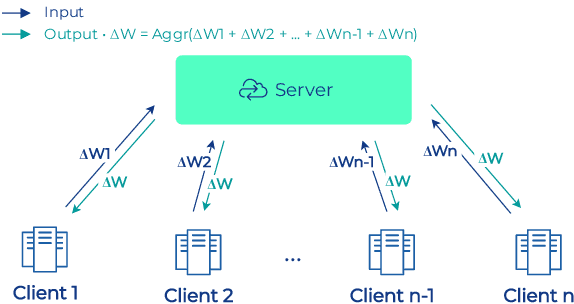
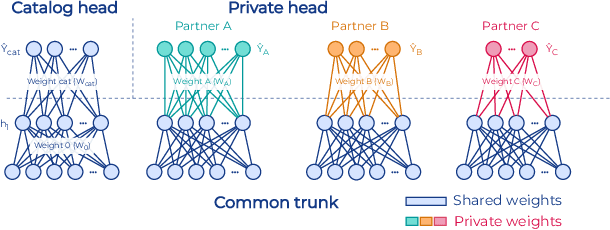
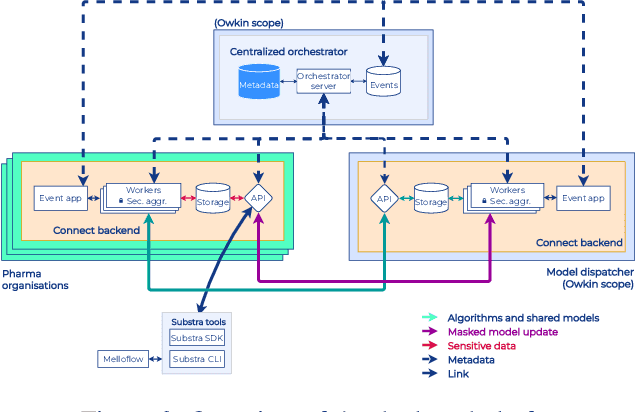

Abstract:To apply federated learning to drug discovery we developed a novel platform in the context of European Innovative Medicines Initiative (IMI) project MELLODDY (grant n{\deg}831472), which was comprised of 10 pharmaceutical companies, academic research labs, large industrial companies and startups. To the best of our knowledge, The MELLODDY platform was the first industry-scale platform to enable the creation of a global federated model for drug discovery without sharing the confidential data sets of the individual partners. The federated model was trained on the platform by aggregating the gradients of all contributing partners in a cryptographic, secure way following each training iteration. The platform was deployed on an Amazon Web Services (AWS) multi-account architecture running Kubernetes clusters in private subnets. Organisationally, the roles of the different partners were codified as different rights and permissions on the platform and administrated in a decentralized way. The MELLODDY platform generated new scientific discoveries which are described in a companion paper.
Substra: a framework for privacy-preserving, traceable and collaborative Machine Learning
Oct 25, 2019



Abstract:Machine learning is promising, but it often needs to process vast amounts of sensitive data which raises concerns about privacy. In this white-paper, we introduce Substra, a distributed framework for privacy-preserving, traceable and collaborative Machine Learning. Substra gathers data providers and algorithm designers into a network of nodes that can train models on demand but under advanced permission regimes. To guarantee data privacy, Substra implements distributed learning: the data never leave their nodes; only algorithms, predictive models and non-sensitive metadata are exchanged on the network. The computations are orchestrated by a Distributed Ledger Technology which guarantees traceability and authenticity of information without needing to trust a third party. Although originally developed for Healthcare applications, Substra is not data, algorithm or programming language specific. It supports many types of computation plans including parallel computation plan commonly used in Federated Learning. With appropriate guidelines, it can be deployed for numerous Machine Learning use-cases with data or algorithm providers where trust is limited.
Machine learning for classification and quantification of monoclonal antibody preparations for cancer therapy
May 31, 2017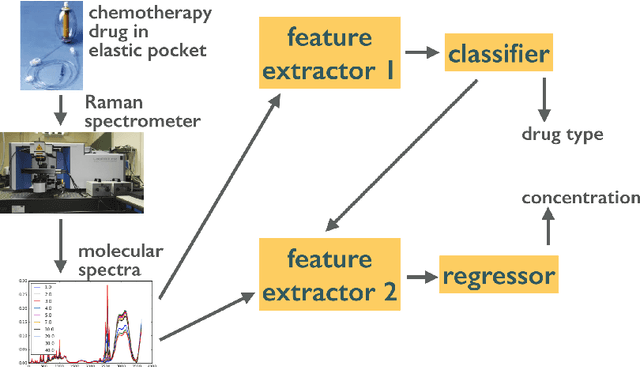

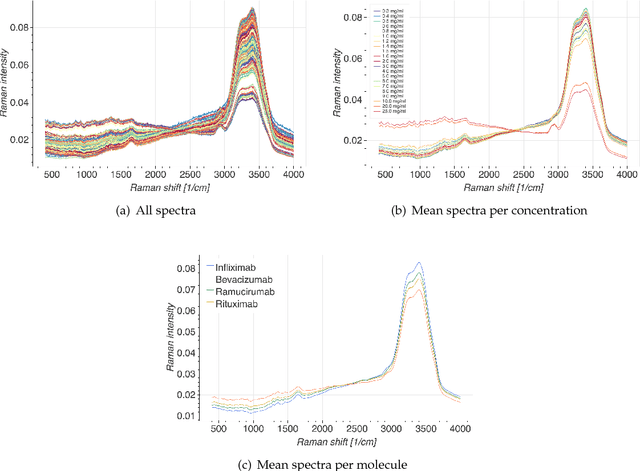
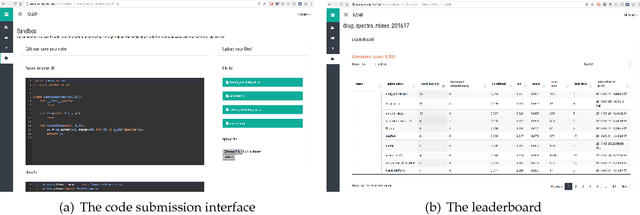
Abstract:Monoclonal antibodies constitute one of the most important strategies to treat patients suffering from cancers such as hematological malignancies and solid tumors. In order to guarantee the quality of those preparations prepared at hospital, quality control has to be developed. The aim of this study was to explore a noninvasive, nondestructive, and rapid analytical method to ensure the quality of the final preparation without causing any delay in the process. We analyzed four mAbs (Inlfiximab, Bevacizumab, Ramucirumab and Rituximab) diluted at therapeutic concentration in chloride sodium 0.9% using Raman spectroscopy. To reduce the prediction errors obtained with traditional chemometric data analysis, we explored a data-driven approach using statistical machine learning methods where preprocessing and predictive models are jointly optimized. We prepared a data analytics workflow and submitted the problem to a collaborative data challenge platform called Rapid Analytics and Model Prototyping (RAMP). This allowed to use solutions from about 300 data scientists during five days of collaborative work. The prediction of the four mAbs samples was considerably improved with a misclassification rate and the mean error rate of 0.8% and 4%, respectively.
Morpheo: Traceable Machine Learning on Hidden data
Apr 17, 2017
Abstract:Morpheo is a transparent and secure machine learning platform collecting and analysing large datasets. It aims at building state-of-the art prediction models in various fields where data are sensitive. Indeed, it offers strong privacy of data and algorithm, by preventing anyone to read the data, apart from the owner and the chosen algorithms. Computations in Morpheo are orchestrated by a blockchain infrastructure, thus offering total traceability of operations. Morpheo aims at building an attractive economic ecosystem around data prediction by channelling crypto-money from prediction requests to useful data and algorithms providers. Morpheo is designed to handle multiple data sources in a transfer learning approach in order to mutualize knowledge acquired from large datasets for applications with smaller but similar datasets.
 Add to Chrome
Add to Chrome Add to Firefox
Add to Firefox Add to Edge
Add to Edge